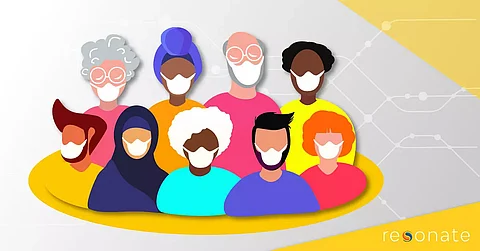
- Home
- Live Blog
- Breaking News
- Top Headlines
- Cities
- NE News
- Sentinel Media
- Sports
- Education
- Jobs

Dr. Bhaskar Neog
(The writer is Consultant Geriatric Medicine,
Hayat Super Speciality Hospital, Guwahati)
Coronavirus disease 2019 (COVID-19) is defined as illness caused by a novel coronavirus now called severe acute respiratory syndrome corona virus 2 (SARS-CoV-2; formerly called 2019-nCoV), which was first identified amid an outbreak of respiratory illness cases in Wuhan City, Hubei Province, China. It was initially reported to the WHO on December 31, 2019. On January 30, 2020, the WHO declared the COVID-19 outbreak a global health emergency. On March 11, 2020, the WHO declared COVID-19 a global pandemic, its first such designation since declaring H1N1 influenza a pandemic in 2009. Now the whole world is battling the second wave of COVID-19. The global caseload of COVID-19 has surpassed the 140 million mark with the US being the worst-hit country followed by India.
HOW IT SPREADS:
The corona virus that causes COVID-19 is mainly transmitted through droplets generated when an infected person coughs, sneezes, or exhales. These droplets are too heavy to hang in the air, and as a result, quickly fall on floors or surfaces.
You can be infected by breathing in the virus if you are within close proximity of someone who has COVID-19, or by touching a contaminated surface and then your eyes, nose or mouth.
SIGNS AND SYMPTOMS OF COVID 19:
COVID-19 affects different people in different ways. Most infected people will develop mild to moderate illness and recover without hospitalization. Some of the most common symptoms are:
Fever, dry cough, tiredness.
The less common symptoms include:
Aches and pains, sore throat, diarrhoea, conjunctivitis, headache, loss of taste or smell, a rash on skin, or discolouration of fingers or toes.
Severe form of COVID-19 may lead to difficulty in breathing or shortness of breath, chest pain or discomfort, loss of speech or movement.
Now the whole world is battling with the second wave of COVID-19. The situation is getting worse as the COVID-19 infection is going undetected in the RT-PCR test. The double mutant of the coronavirus which can't be detected by a COVID-19 test has a series of strange symptoms. Some of these are listed below:
1. Sore throat (most common)
2. Fatigue
3. Bodyache
4. Fever and chills
5. Nausea and vomiting
6. Dizziness
7. No saliva production.
On an average it takes 5–6 days from when someone is infected with the virus for symptoms to show, however it can take up to 14 days.
People with mild symptoms who are otherwise healthy should manage their symptoms at home.
TREATMENT AND SELF-CARE:
Once a patient feels sick he/she should rest, drink plenty of fluid, and eat nutritious food, stay in self-isolation, and use a separate bathroom if possible. Frequently touched surfaces should be cleaned and disinfected.
Everyone should maintain a healthy lifestyle at home. Maintain a healthy diet, sleep, stay active, and make social contact with loved ones with the help of electronic media. Keep to regular routines and schedules as much as possible. Talking to people you trust, such as friends and family can help. If one is overwhelmed, he/she should talk to a health worker or counsellor.
COVID-19 VACCINATIONS:
India has rolled out two corona virus vaccine:
Covishield and Covaxin.
Covishield has been developed by AstraZeneca and Oxford University and is being manufactured by Serum Institute of India.
The other vaccine Covaxin is developed by Bharat Biotech.
Sputnik V will be the third vaccine to be used in India against COVID-19. The Gamaleya National Research Centre of Epidemiology and Microbiology and the Russian Direct Investment Fund (RDIF) have reported that the Sputnik V Covid-19 vaccine showed a 97.6% efficacy.
This vaccine will be available very shortly in India.
After being administered COVID-19 vaccine, some individuals may have side effects like mild fever, pain at injection site, body ache and headache. This is similar to the side effects that occur post some other vaccines.
The Government of India had advised all states to increase the interval between the first and second doses to six to eight weeks, instead of taking it after 4 weeks.
WHO SHOULD NOT TAKE THE VACCINE?
It is advisable not to take the vaccine if a person has allergies, fever or bleeding disorder, weaker immunity or are on a medicine that affects their immune system. It also said that pregnant and breastfeeding women should also avoid taking Covaxin.
Have received another coronavirus vaccine.
Any other serious health-related issues as determined by the healthcare officer supervising vaccine.
If the first dose of vaccine causes any allergic reaction, then the second dose should be avoided.
HOW TO PREVENT THE SPREAD OF COVID-19:
Clean your hands often using soap and water, or an alcohol-based hand rub.
Maintain a safe distance from anyone who is coughing or sneezing.
Wear a mask and maintain physical distancing.
Don't touch your eyes, nose or mouth.
Cover your nose and mouth with your bent elbow or a tissue when you cough or sneeze.
Stay home if you feel unwell.
If you have a fever, cough and difficulty breathing, seek advice from your doctor.